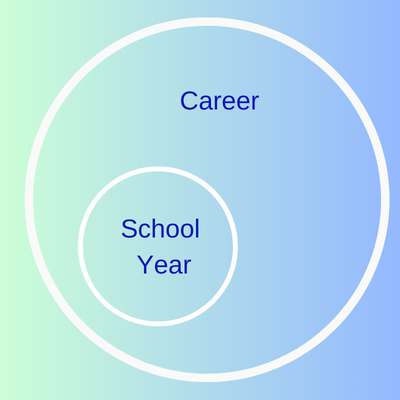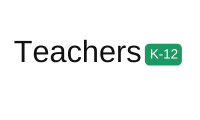The end of year teacher memes are out, usually featuring some variation of everyone is depleted. The burnout they depict is real and have serious consequences, not just for teachers and students, but for the profession itself.
Burnout can be defined as
a condition in which an educator has exhausted the personal and professional resources necessary to do the job.
National Education Association quoted by Devlin Peck
It seems to me that for me and the teachers I talk to, burnout slowly eats at our enthusiasm and energy over the course of the school year and at the same time, over the course of our careers.

Over the school year, symptom may include:
- more strident tones when telling a student to put his arms back into his sleeves and get started on the math.
- arriving at school two minutes before the bell, still surprised that you were able to get out of bed at all.
- brain fog, or outright brain malfunction, like confusing there with their, even though you’ve taught the difference a thousand times.
- collapsing in front of the TV at 6:15 and waking up at 8:00 PM, believing that it’s morning.
As our teaching career progresses (for some, starting as early as five years in), symptoms may include:
- occasionally finding yourself in a fetal position rocking back and forth, and thinking how did I find myself in this profession?
- watching other people leave their work at work and fighting a stab of envy.
- looking down the barrel of the next X number of years until retirement and being bewildered at the prospect of facing them.
- hearing some bitter and jaded remarks about teaching and parents and students and everything related to the profession and realizing you’re the one making said remarks.

Here’s my take on the solutions.
Recognize That This is Not Who You are
Most teachers are keen and enthusiastic at the beginning of the school year. They were fresh and optimistic at the start of their careers. This fatigue, this cynicism, this decreased motivation, and these feelings of ineffectiveness, all of this, is just an expression of burnout. By acknowledging these as symptoms of burnout you’ll be more solutions oriented than not.
Say No?
Establishing clear limits on working hours maintain a healthy work-life balance. The conventional advice is to say no. Say no to emails after work hours. Say no to grading papers and writing report cards way into the night. Stop spending your personal time on these myriads of things that clamour for your immediate attention.
But all of this is easier said than done. Some of it, any teacher can pull off with a little effort. But much of this boundary setting is well-near impossible to do without appearing incompetent, or without actually failing to deliver some of the expectations of the job. I do not know any classroom teacher who doesn’t give up personal time for work.
Still, the teachers who set better boundaries and have a better work-life balance tend to conserve their energy and recoup from exhaustion more frequently; thereby suffering less burnout.
Take a year off every four years (if you can)
Not everyone has the financial wherewithal to do this, but hear me out. I once met a teacher who does this and she totally sold me on the idea. She’s single and childless and doesn’t own a house, all of which plays a factor in why this works for her. She takes every fifth year off, moves to a country where the cost of living is lower and creates art for a year. Then she comes back energized and starts the cycle again.
I get that this isn’t an option for everyone. But maybe there is some kind of system in place where you work that might allow this, (or a version of it). In my board teachers can do something called a four over five, where they take a 25% pay cut for four years, in order to get the fifth year off with pay. Bear in mind that unlike in a video game, you only get one life.
Advocate for Systemic Change
Let’s face it, the root causes of teacher burnout require more than self care in the form boundaries et cetera. What needs to happen is systemic change. The real enemy here is policies driven by budget cuts.
As long as these policies are in place, the powers that be will continue to push self-care and dedicate twenty minutes of a staff-meeting to teach stress reduction techniques, while doing nothing to address the root cause of the problem. We go along with this charade at our own peril.
We should call for policies that reduce excessive workload, provide adequate resources, and prioritize teacher well-being. We can call for these changes through our labour unions and through our vote. That thing about setting boundaries is a form of resistance that can ripple out to enact systemic change. If all teachers decided to cut half the things we do outside of our working hours, the system would grind to a halt. Someone should do a study on that.
Burnout will continue to be a problem if we do not change the work environment that causes it.

